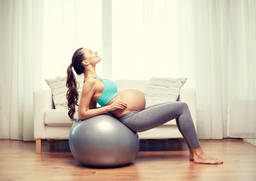Kids Personal Trainer
Hiring a personal trainer for a child involves some unique considerations. Here are some pieces of advice to keep in mind:

Hiring a personal trainer for a child involves some unique considerations. Here are some pieces of advice to keep in mind:
-
Certification and Experience:
- Ensure that the personal trainer is certified and has experience working with children. Look for certifications from reputable organizations like the National Academy of Sports Medicine (NASM) or the American Council on Exercise (ACE).
-
Pediatric Specialization:
- If possible, choose a trainer with a specialization in pediatric fitness. Understanding the unique needs, developmental stages, and safety considerations for children is crucial.
-
Background Check and References:
- Conduct a background check and ask for references. Safety is a top priority, so you want to ensure the trainer has a good track record with children.
-
Communication Skills:
- A good kids' personal trainer should have excellent communication skills. They need to be able to explain exercises in a way that is both understandable and motivating for children.
-
Fun and Age-Appropriate Workouts:
- Children are more likely to stay engaged if the workouts are fun and age-appropriate. Look for a trainer who incorporates games, challenges, and activities that align with your child's interests.
-
Nutritional Guidance:
- While personal trainers aren't typically dietitians, a basic understanding of nutrition is important. They should be able to provide general guidance on healthy eating habits suitable for a child's age.
-
Adaptability:
- Kids can have varying energy levels and attention spans. A good trainer should be adaptable and able to modify workouts as needed, ensuring that they are challenging but not overly demanding.
-
Parental Involvement:
- Consider how involved the trainer encourages parents to be. Regular updates and recommendations for at-home activities can help reinforce healthy habits beyond the training sessions.
-
Safety First:
- Safety should be a top priority. Ensure the trainer is well-versed in age-appropriate warm-ups, cool-downs, and stretching to prevent injuries. They should also be trained in CPR and first aid.
-
Setting Realistic Goals:
- Establish realistic and age-appropriate fitness goals for your child. The emphasis should be on overall health, physical development, and instilling a love for an active lifestyle rather than achieving a specific look or weight.
-
Initial Consultation:
- Before committing to a personal trainer, schedule an initial consultation. This is an opportunity to discuss your child's specific needs, any health considerations, and your expectations.
Remember, it's crucial to foster a positive attitude toward exercise and a healthy lifestyle in children. If your child enjoys the experience, they're more likely to develop a lifelong love for physical activity.

